Best Practices for Mobile Clinic Staff Training
Like every healthcare organization, mobile clinics need the appropriate medical staff training. For patients to receive the best possible medical...
3 min read
Craftsmen Industries Nov 10, 2022 6:43:00 PM
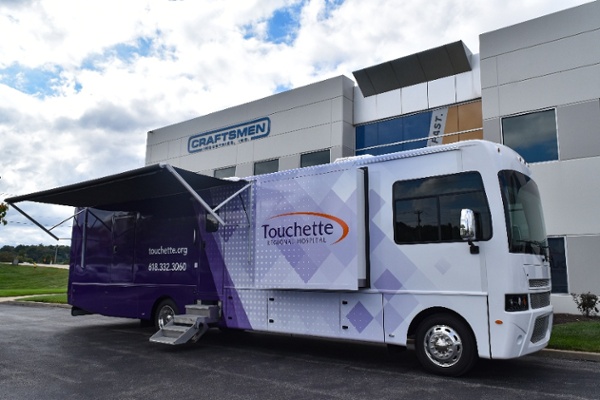
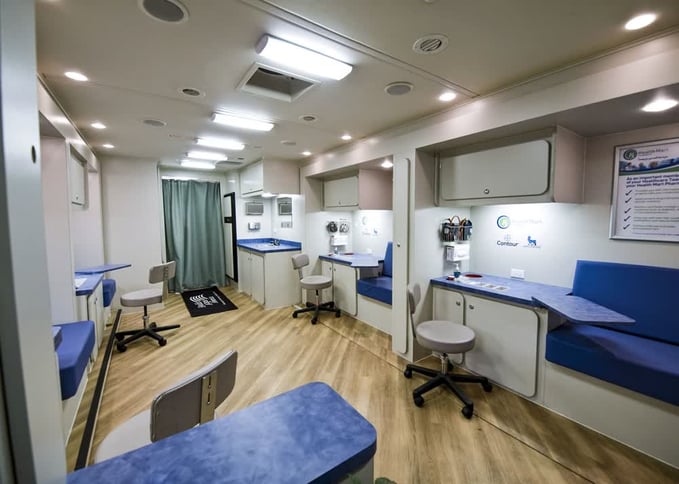
Demand for mobile medical clinics providing local medical testing, dental care, preventative health screenings, and more is on the rise. If you are a medical practitioner looking to start a mobile medical program, there are many things to consider first to ensure your business gets moving without a hitch.
It is critical to avoid common mistakes if you wish to see your mobile medical program succeed. These mistakes include not having a well-researched, thorough plan, overlooking the licensing process, underestimating the costs, and making the wrong staffing and vehicle decisions for your clinic’s needs. A mobile medical practice can be very profitable if you do enough research, work, and plan first.
Before finding your medical vehicles, hiring staff, and getting set up to practice, you should conduct community research to determine if your services will fit a targeted community. Take the time to:
Your mobile medical program should bring value to a community. If what you are offering is not wanted or needed in a particular location, your clinic will not be successful.
While your clinic will be mobile, it will still need places to park that are accessible to patients.
Who knows better what a community needs and how to reach them than the organizations already working there? Reach out to community leaders, churches, and other charitable organizations.
Be sure that marketing begins before you open to inform the community about your organization and services.
When starting any business, it is important to keep expectations realistic. Your traditional medical practice may succeed and function well, but moving into a mobile medical program will bring new challenges. Be sure that you are well prepared to avoid headaches and preventable problems.
Success will not happen overnight in any new business, and with a mobile medical practice, success depends on the community you aim to serve. Developing strong partnerships with community organizers and leaders, as well as schools and community centers, and marketing to the local community will help build trust and bring patients in.
Running a brick-and-mortar clinic is very different from operating a mobile unit. You will need to keep that in mind and set realistic goals for your practice.
Ensure you’ve researched and followed all local, federal, and state regulations. Start this research early in the process and be sure that you have all necessary licensing before launching your mobile medical vehicles. Your mobile medical vehicle will need to be in compliance with these laws and regulations.
If the details of local licensing and regulations are too overwhelming, consider consulting with county and state officials to be sure you fully understand. Some lawyers specialize in medical and business law and consulting with them may be helpful.
Your medical practice must also be registered ahead of time with the insurance companies you plan to work with and Medicare. Registration can be a long process, so start enrollment early. If you underestimate the time and work involved, this can result in lost revenue and opportunities to treat potential patients.
Selecting the wrong vehicles for your mobile clinic can derail the whole endeavor. To ensure success for your mobile clinic, be sure to work with a company that specializes in medical vehicles. A residential vehicle or converted school bus will not meet your medical clinic needs.
You should first decide what type of vehicle you want to use. There are many to choose from including trailers, coaches, vans, and more. Consider your budget, space needs, and other logistics, and discuss the options with a medical vehicle representative.
Whatever you choose, you will need your mobile clinic to be safe and reliable. Opt for a new vehicle or used vehicles in good working condition and equipped with generators, safety locks, and temperature controls. A trusted medical vehicle company will also help you fit your mobile clinic with the best medical equipment. You do not want to cut corners in this area.
Bring in the right people for your mobile medical business. Having a strong and trustworthy staff right away can help you avoid many common issues and help you save money in the long run. Hiring the wrong people will bring extra costs for rehiring and retraining.
The wrong employees working for your company can also cost you productivity. A team should work efficiently together. A bad hire can hurt your company's morale. Take time and energy to screen employees and make smart hiring decisions.
Starting a mobile medical program can be a very exciting prospect. Make sure that before you start the process you have a good understanding of the costs involved.
Some primary costs include medical vehicles, specialty equipment, maintenance, insurance, licensing, labor and staff costs, gas, internet, software and hardware, and marketing costs. Budget thoroughly and wisely. Preparing a 5-year projection can help avoid any unforeseen costs popping up.
Whether you have a successful brick-and-mortar medical business already or are new to the market, you will face many of the same issues and considerations. With a lot of thorough research, community outreach, and budgeting, you can avoid mistakes that could keep your mobile program off the streets.
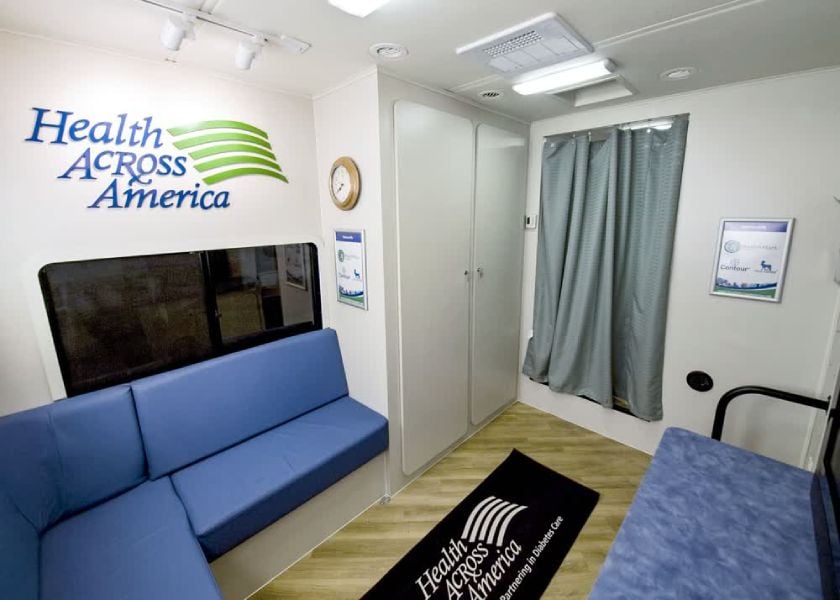
Like every healthcare organization, mobile clinics need the appropriate medical staff training. For patients to receive the best possible medical...
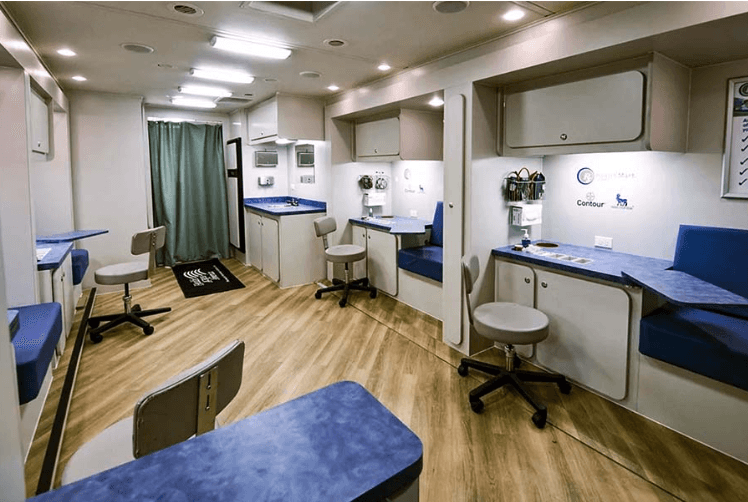
Innovations in healthcare delivery have led to the emergence of mobile medical vehicles, often serving underserved communities and remote areas....
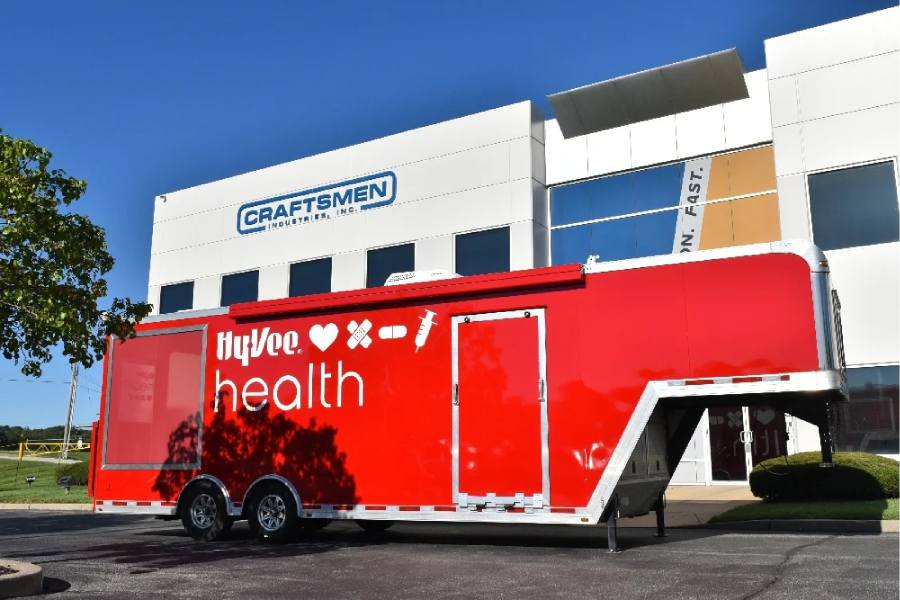
Mobile medical vehicles are highly sufficient types of vehicles used by healthcare providers who want to help underserved communities. But who...